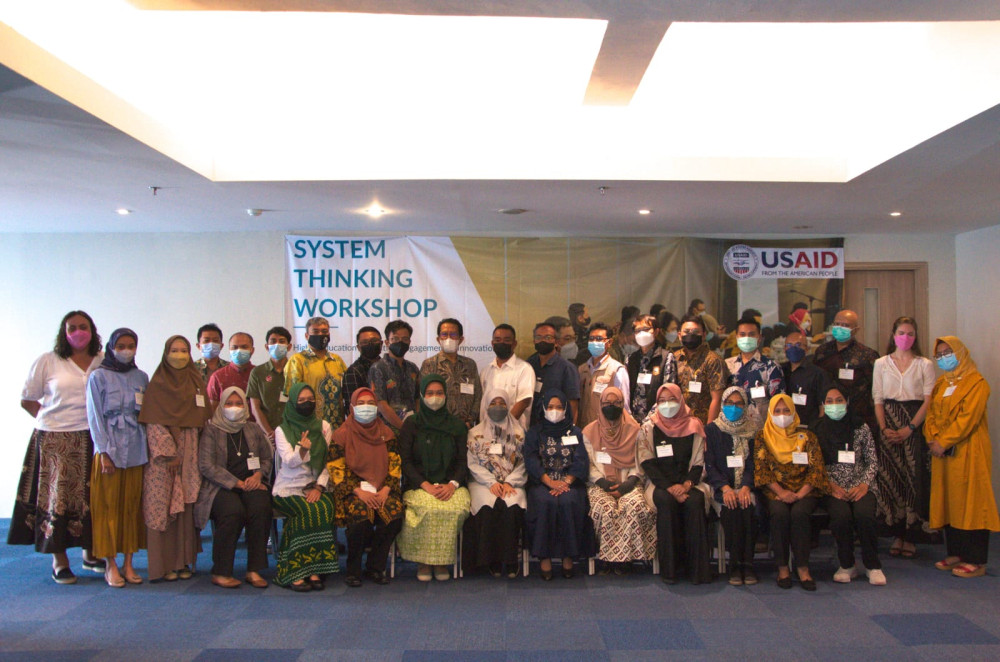
By Mardianto Natanael Wangkanusa & Arini Mushfiroh I 30/08/2022 I 01.30 PM
Through the SHARE (Supporting Holistic and Actionable Research in Education) project, the University of Notre Dame (UND) collaborates with SMART CITY Universitas Indonesia (UI) in the quest for Innovation Ecosystem.
This research project in Indonesia is now in its First Phase and is still progressing. Comprehensive literature reviews and key informant interviews were already conducted for several months. During the research process in First Phase, the SMART CITY Team exchanged ideas and discussed the preliminary key findings with the UND Team. In the beginning, the research focused on the Science Techno Parks (STPs), an Indonesian Government initative program that functions as a hub where innovators collaborate and have easier access to government and private sectors as end users, which includes access to funding opportunities. STPs are perceived as a direct attempt to mimic Silicon Valley; therefore, they were highly considered research objects. Through thorough evaluations and discussions, it is found that STPs are not necessarily representing or forming an innovation ecosystem but rather the ecosystem that focuses on business and monetization.
The focus of the research was then redirected to the Higher Education Institutions (HEIs) engagement in innovation. Through literature reviews, several studies highlighted the collaboration between HEIs and other actors, such as government institutions, practitioners, communities or associations, professional organizations, research institutions, and media, both in research and producing innovations.
This far, there are no regions yet in Indonesia that could be fully described and fit as an Innovation Ecosystem in which collaborations between actors, including HEIs, are intertwined sustainably. West Java is the closest region that could potentially represent the innovation ecosystem in Indonesia as the productive, innovative research and collaboration between actors are mostly formed in the area.
The conducted literature reviews and key informat interviews confirmed the trend of studies focusing on "Agriculture" revealing such collaborations in relation to agricultural innovation, for instance, the urban farming 'Buruan SAE' in Bandung and the innovation of Calina Pepaya seed varieties and their commercialization. However, it is also found that there is still a lack of collaboration between actors involved in the ecosystem, less adoption and adaptation to the current technologies, and fewer human resources that would like to invest in this field, as well as a lack of strict policies that regulate this collaborative system in relation to agriculture. In order to gain more insight into this research, furthermore, this First Phase includes a designated workshop that will be using a system thinking framework to explore lessons learned from a collaboration between higher education institutions, governments, and communities regarding the agricultural innovation ecosystem in West Java, Indonesia. The workshop will both prepare the UND and Smart City UI teams for the implementation of research activities and will connect participants to increase interactivity across the evidence ecosystem.
For more details, check it out at this link: bit.ly/WestJavaInnovationEcosystem
Smart Idea for Smart City!
